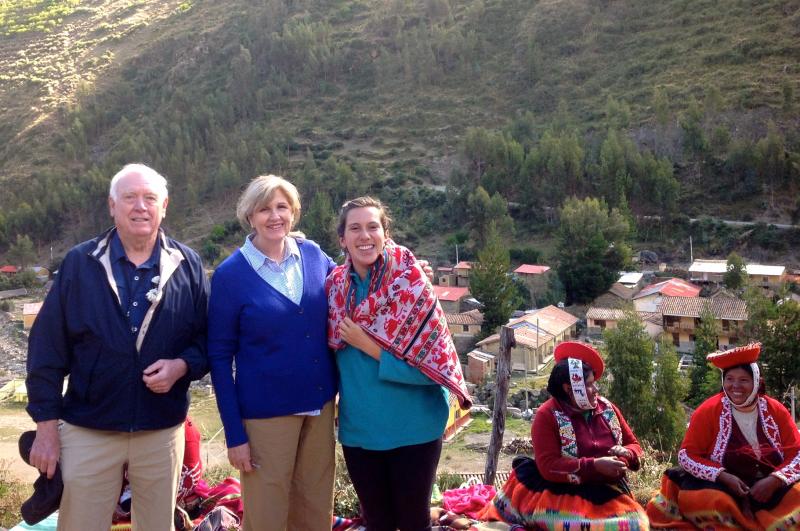Websites, turtles, chance meetings in the Andes
Cape Gazette readers who keep an eye on our website at capegazette.com will notice changes this weekend. For the past few months the team has been working on updates to the site in anticipation of a new platform that will make us more mobile responsive. No matter whether you access us on your home desktop, your tablet or your mobile phone, our capegazette.com site will be optimized for the screen you’re viewing. To make our new site look like an app icon on your phone screen so you can just tap it to get to us, open our site, touch the symbol at the bottom of the page that shows a box with an arrow in it, and then press the button that says add to home screen. Easy peasy. Look at your phone screen buttons. The Cape Gazette will be there mixing it up with the rest of them.
Transitions like this one are never really easy peasy. They always require tweaking after the site goes live to get all the moving parts working as intended. It may take a few days for the tons of data that make up capegazette.com to migrate from our former site to the new one. In the meantime, we appreciate your patience. As always, thanks sincerely for being Cape Gazette readers.
Turtles on the move
Many people out and about this past weekend encountered turtles on the move. Cyclists and walkers on the Junction and Breakwater and Gordons Pond trails saw box turtles and snappers easing their way from one side to the other. Along the Coastal Highway between Dewey Beach and Indian River Inlet, Diamondback Terrapins are making their way to favored nesting areas in the dunes on the ocean side of the highway and in sandy areas bordering the salt marshes on the bay side. It’s egg-laying time for the turtles on Delaware’s Cape Region.
John David Miller, who lives in the Hawkseye community near Lewes, said he watched a large snapper - about the size of a bushel basket lid - lumber across his lawn. Satisfied she had found her spot in a garden area, the turtle, said John David, used her hind legs to dig out a hole about eight inches in diameter and about the same depth. “Then she positioned herself over the hole and began laying eggs - 26 of them.”
Snapping turtle eggs are the size of ping-pong balls. In the warm and loose soil preferred for nests, the eggs usually take about 75 to 90 days to hatch. According to former Missouri herpetologist Tom R. Johnson, up to 84 percent of snapping turtle nests are destroyed by predators such as minks, raccoons and skunks.
Just like the eggs of other reptiles and birds, they are a delicacy for lots of predators. Snapping turtles live in freshwater marshes and swamps but will travel up to a mile from their normal habitat to find a piece of higher ground that suits their instincts.
In our region, May and June are the months of highest activity for turtles.
Acknowledging that, state and Center for the Inland Bays employees post signs and put out notices to alert motorists who travel the Coastal Highway that there may be Diamondback Terrapins on the road.
They have been a protected species for many years, and the fewer that end up crushed by tires, the better.
Common ground in the Andes
Rehoboth Beach residents Jan and Ken Konesy traveled in May to the remote Andean village of Patacancha, in the South American nation of Peru. Visiting a ladies weaving cooperative “literally in the middle of nowhere” - at 12,000 feet - the Konesys were introduced to the guide, a young woman named Vivian Smith.
“She asked where we were from and we said southern Delaware and she said ‘Oh my god, so am I,’ and you can imagine what happened from there. She’s a lovely young woman and is working for a nonprofit that helps the women in this remote village improve and market their beautiful weaving. She said in her two and a half years there she had never met anyone from Delaware. The name of the nonprofit is Awamaki.”
Many people in the area may know Vivian’s father, tax attorney Buck Smith.
“I just love Delaware,” said Jan. “These things seem to happen more than they should given our small size.”






















































